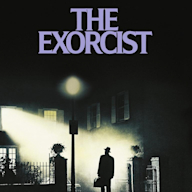Search results
The word Halloween literally means the evening before All Hallows Day (or All Saint’s Day) celebrated on November 1. Halloween is also the shortened name of Allhalloween, All Hallows’ Evening and All Saint’s Eve which is celebrated on October 31. The origin and meaning of Halloween are derived from ancient Celtic harvest festivals, but ...
Halloween A Part of Conversation Questions for the ESL Classroom. What day of the month is halloween ...
Yes. Although some people view Halloween as harmless fun, the practices associated with it are in direct conflict with Bible teachings. Halloween is based on false beliefs about the dead and invisible spirits, or demons. Notice the following verses that show how God views the beliefs associated with Halloween: “There must never be anyone ...
In the United States and Canada, Halloween is widely known and celebrated every year on October 31. Halloween customs, though, can be found in many other parts of the globe. In some places holidays are celebrated that, although named differently, share similar themes: contact with the spirit world involving the spirits of the dead, fairies ...
Halloween colors are black and ___. 3. The bones of a body. 5. The children say "___ or treat!" on Halloween. 6. One Halloween party game is ___ for apples. This is a crossword puzzle for students of English as a second language.
Joseph in the Land of Egypt. How can you make God happy even when no one is watching? Read this Bible story and learn from Joseph’s example. Halloween & similar celebrations have become popular in many parts of the world. Consider 4 points that reveal why many people avoid these celebrations.
Nagmula ang Halloween sa mga maling turo tungkol sa mga patay at di-nakikitang espiritu, o mga demonyo. Pansinin ang sumusunod na mga teksto na nagpapakita kung ano ang tingin ng Diyos sa Halloween: “Hindi dapat magkaroon sa piling mo ng . . . sumasangguni sa mga espiritu o nanghuhula o sinumang nagtatanong sa mga patay.”—.
Tinatawag pa rin ng libu-libong Wiccan, na sumusunod sa sinaunang mga ritwal ng mga Celt, ang Halloween sa sinaunang pangalan nito na Samhain. At para sa kanila, ito ang pinakasagradong gabi sa buong taon. “‘Walang kamalay-malay [ang mga Kristiyano] na kasama namin silang nagdiriwang ng aming kapistahan. . . .
Halloween: Though celebrated as a Christian holiday, Halloween finds its origins in pre-Christian festivals that propagate false ideas about life after death. Interestingly, we read: “After the Reformation, Protestants rejected this feast along with other important ones such as Christmas and Easter.
Halloween bygger på forkerte opfattelser af døden og de usynlige ånder, eller dæmoner. Her er nogle bibelvers der fortæller hvordan Gud ser på de opfattelser og skikke der er nært forbundet med halloween: “Der må aldrig findes nogen hos dig som ... henvender sig til genfærd eller ånder eller kalder de døde frem.”. – 5.


